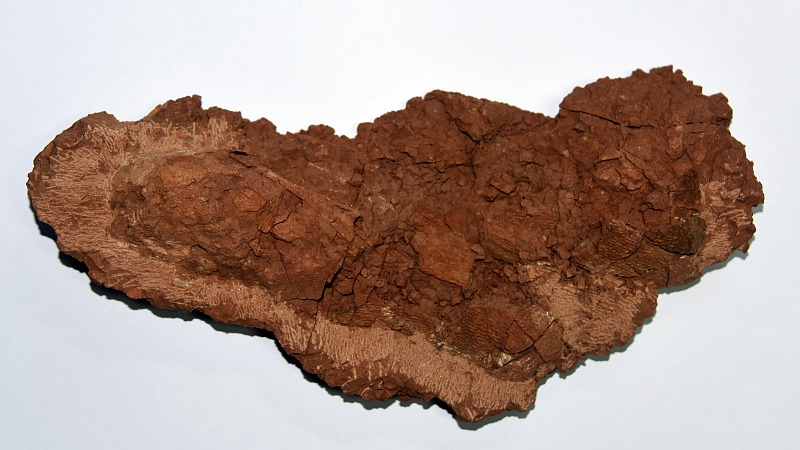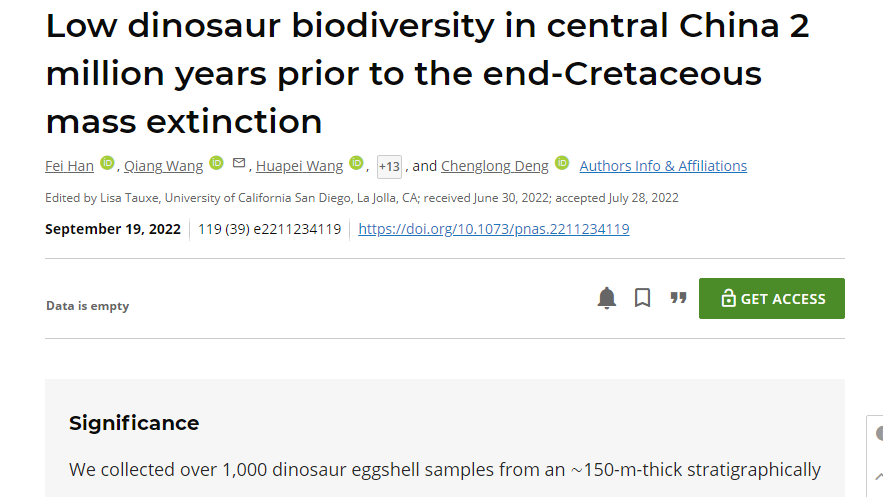
The dinosaur egg fossil sample used for the study by the Institute of Vertebrate Paleontology and Paleoanthropology under the Chinese Academy of Sciences in Beijing, China, September 20, 2022. /CFP
The dinosaur egg fossil sample used for the study by the Institute of Vertebrate Paleontology and Paleoanthropology under the Chinese Academy of Sciences in Beijing, China, September 20, 2022. /CFP
There had been a long-term decline in the diversity of dinosaurs globally before a large asteroid hit the Earth 66 million years ago and contributed to their extinction, a new study by Chinese researchers showed.
The study was published on Monday as a cover story in the journal Proceedings of the National Academy of Sciences (PNAS).

Screenshot of the study from the website of PNAS.
Screenshot of the study from the website of PNAS.
Researchers from the Institute of Vertebrate Paleontology and Paleoanthropology of the Chinese Academy of Sciences (CAS), along with their collaborators, assessed 1,000 fossilized dinosaur eggs and eggshells from the Shanyang Basin in central China, and identified a decline in dinosaur diversity based on the data.
The 1,000 dinosaur egg fossils collected from the basin represent only three different species: Macroolithus yaotunensis, Elongatoolithus elongatus, and Stromatoolithus pinglingensis. Two of species are from a group of toothless dinosaurs known as oviraptors, while the other is from the plant-eating hadrosaurid group (also known as duck-billed dinosaurs).
This low diversity of dinosaur species was sustained in central China for the last 2 million years before the mass extinction, the study found.
The results, in concert with data from North America, suggest that dinosaurs were probably declining globally before their extinction, according to the study.
This worldwide, long-term decline in dinosaur diversity through the end of the Cretaceous Period and sustained low number of dinosaur lineages for the last few million years may have resulted from known global climate fluctuations and massive volcanic eruptions, and these factors may have led to ecosystem-wide instability, thus making non-bird dinosaurs vulnerable to mass extinction coincident with the asteroid impact, the CAS wrote.

